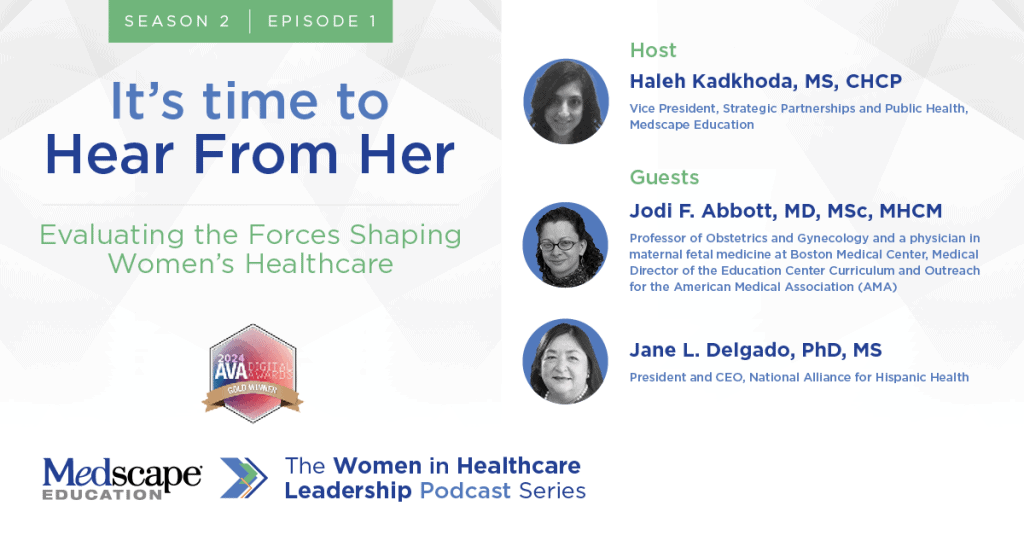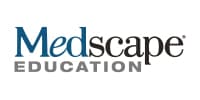Evaluating the Forces Shaping Women’s Healthcare
March 6, 2024 | Leadership, Women in healthcare
Gaps in women’s healthcare go beyond access and cost. Do clinicians have the tools they need to understand women’s health?

If there are any lingering doubts about how today’s healthcare system fails many women, a 2022 study from the Kaiser Family Foundation will set the record straight. Their report revealed that close to 20 percent of all women in the U.S. ages 18 and older considered their health fair or poor. Out of a population of 168 million women, that is a shockingly large number of people who feel less than well.
Drilling down by race and ethnicity, the numbers break out to 31% of American Indian and Alaskan Native women, 25% of Hispanic women, 23% of black women, 16% of white women, and 10% of Asian Native Hawaiian and other Pacific Islander women. The same study found that 10% of all women 18 and older did not see a doctor due to cost.
And here’s something else to consider, says Jane Delgado, clinical psychologist and President and CEO of the National Alliance for Hispanic Health. Even if you can afford it, if you have access to health insurance, “once you get through the door, does the person you see hear you? Does that person have the tools to understand women’s health? Are you getting the care you need, and does your healthcare provider have the tools and information they need?”
Not to mention the additional barriers of ethnicity and age that women often face, says Jodi Abbott, who has dual roles as Professor of Obstetrics and Gynecology and a physician in maternal fetal medicine at Boston Medical Center, and Medical Director of the Education Center, Curriculum and Outreach for the American Medical Association (AMA). Women’s complaints “are much less likely to be listened to, and they end up being underdiagnosed and undertreated for most conditions.” While you’re seeing a physician to try to feel better, “they are there to cross a disease off a list. There’s a mismatch between the hopes and expectations of many people who enter the system and how most physicians are trained. Our healthcare system is geared toward disease management, rather than addressing the elements that help keep people healthy.”
Abbott says she’s “privileged” to work at Boston Medical, which is an ACO, or accountable care organization. “The difference between that system and traditional insurance-based or fee-for-service systems is that our organization is set up to have a certain amount of money every year to keep people healthy as opposed to receiving money for how much time they spend in the hospital because of certain diagnoses. When we switched to that, it really opened the door to physicians and health care providers with the desire to widen their team—for example, to include non-physician team members—and to be able to focus on initiatives that can improve health, and not just those that identify complications.”
One example of this, says Abbott, has been a large investment in the community and in “nontraditional” mechanisms of health care, such as doulas—birth attendants who are not physicians, not nurses, “who represent the women in the communities that our patients come from. They are multilingual, and can have a personal connection, sort of a mother or auntie figure, but they also know how a hospital works and can guide people who are attending for the first time.
“There’s an important investment that needs to be made [in programs] that help keep people healthy,” Abbott says.
We need to hit our health enterprise at many different levels to really effect change, says Delgado. “From how the system includes women in every place from researcher to clinician to participant, to how women approach that system. And we need to talk to women about their total health and teach them about how to take care of themselves, not just when they’re pregnant but throughout their whole lives.”
Listen now to season two, episode 1 on Medscape, Spotify or Apple.
For more information please contact Jelena Spyropoulos (Global) or Piyali Chatterjee-Shin (US).
Hosted by Haleh Kadkhoda, MS, CHCP, Vice President, Strategic Partnerships and Public Health at Medscape Education
About Medscape Education Medscape Education (medscape.org) is the leading destination for continuous professional development, consisting of more than 30 specialty-focused destinations offering thousands of free accredited CME and CE courses for physicians, nurses, and other healthcare professionals.
This content was provided by Medscape Education Global
Company Details
Latest Content from Medscape Education Global
TRANSFORMING CME IMPACT: MEDSCAPE’S GAME-CHANGING APPROACH
It’s time for the CME industry to evolve. During recent years, access to data, modern technologies, and methodologies have allowed for deeper analysis of data and a better understanding of...
Why Women in Medicine Should Embrace Social Media
Of course social media has its downside. But online platforms are a powerful tool for women in medicine in terms of forming communities, fighting misinformation, amplifying one another, and galvanizing...
Exceptional Impact Presented at ECCMID 2024
The ECCMID conference in Barcelona, Spain marked the start of Medscape’s publication season in Europe. With three posters being presented at the conference, Medscape shared highlights from the powerful impact...
Showing Deep Expertise at ONS
The Medscape Oncology team will be connecting with the oncology nursing community this week in Washington, DC for the ONS Congress 2024. Medscape Oncology has deep expertise in the oncology...
MEDSCAPE’S NEW AGE OF CERTAINTY FOR CME
The CME industry is changing. More than ever, activities need to be prioritized and measured to increase their impact on patient outcomes. Improving patient outcomes is the core objective for...
Getting Past the Old-Fashioned View of Patient Advocacy
Patient advocacy organizations today are data-driven, doing amazing work — and have the hard evidence to support their impact on patient care. The challenge is getting past the perception of...
Mile High Impact at AAN 2024
The Medscape team will be joining our neurology colleagues in Denver, CO for this year’s AAN Annual Meeting. Impact will take center stage at this year’s event as Medscape presents...
Everything Was Peachy at ACC 2024 in Atlanta, GA
The annual ACC meeting has officially wrapped up in Atlanta, bringing a successful conference to a close for another year. During the conference, members of the Medscape team hosted a...
A Woman Should Not Be Treated As a Small Man
What should the future of women’s healthcare look like? Two renowned physicians say it involves a multidisciplinary, holistic approach, where a group of different specialists work together to provide a...
Sharing Four Times the Impact at ACC 2024
ACC is kicking off next week in Atlanta, GA, and Medscape is heading south to join our cardiology colleagues. The Medscape team will be hosting booth #3431 on the exhibit...





